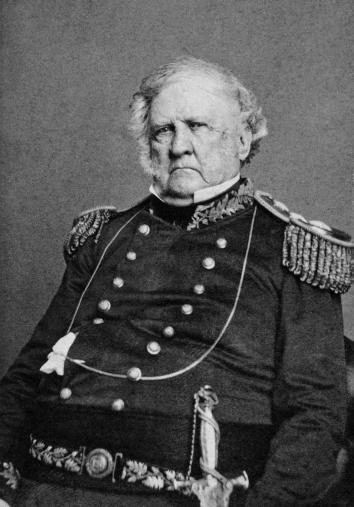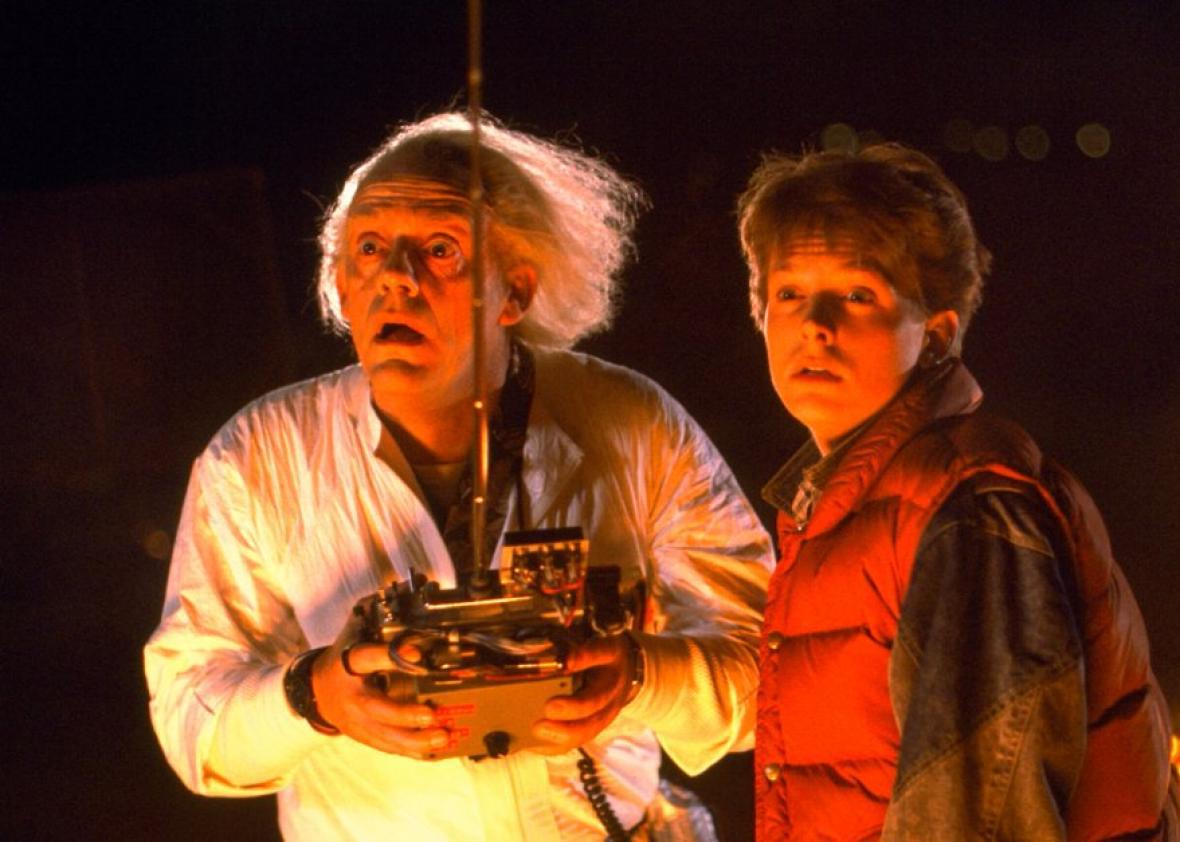Today is Back to the Future Day, the day when we finally reach the precise date of Back to the Future II, survey the fact that we got memes instead of hoverboards, and utter Doc Brown’s favorite exclamation: “Great Scott!” But who was Scott?
U.S. Gen. Winfield Scott, probably.
There are many theories about the origin of the phrase Great Scott! For example, Wikipedia offers a decades-old theory that suggests it’s a corruption of the German greeting Grüß Gott (“good day,” though a more literal translation would be “God greets you”). However, as the British etymologist Michael Quinion has pointed out, this explanation doesn’t make much sense: The German phrase is both used in different contexts and sounds quite different in the mouth of a native German.
Instead, most linguists agree that the phrase is most likely a minced oath—in other words, a euphemistic version of an otherwise blasphemous or profane expression. (Think of gosh darn it, or one of Utah’s favorite phrases, oh my heck.) In the 18th and 19th centuries, it was common to express astonishment by exclaiming Great God!, and Great Scott! became a euphemistic way to say that, just like good golly, good gracious, or good gravy. The phrase first became popular in the mid-19th century. The first known instance of it, as the Oxford English Dictionary points out, appears in an 1856 volume of the Eclectic Medical Journal (“‘Great Scott!’ Mystery upon mystery, and marvel upon marvel!”). One of the next known appearances is in the memoir of a Union soldier, who in one passage marked May 3, 1864, wrote, “ ‘Great Scott,’ who would have thought that this would be the destiny of the Union Volunteer.”*
It is probably not a coincidence that the 1840s, ’50s, and early ’60s were also the years when Winfield Scott was the commanding general of the U.S. Army and that he was sometimes known as “Great Scott.” For example, as an 1861 article in the New York Times wrote, “But who, indeed, in any event, can doubt that these gathering hosts of loyal freemen, under the command of the great SCOTT … will, in due time, achieve a complete triumph?” Some writers of the time made the connection explicitly. In his 1867 Civil War novel Miss Ravenel’s Conversion From Secession to Loyalty, the author John William DeForest wrote:
I follow General Scott. … We used to swear by him in the army. Great Scott! the fellows said.
Another DeForest story, this time from 1871, repeats the same explanation:
“Great—Scott!” he gasped in his stupefaction, using the name of the then commander-in-chief for an oath, as officers sometimes did in those days.

Winfield Scott courtesy of Wikimedia Commons
The phrase may have become associated with other Scotts in later years—Wikipedia points to later uses of the exclamation where it referred to the writer Sir Walter Scott—but there’s nothing to suggest that the phrase originated with any of these other (and perhaps lesser) Scotts. When I put the question to lexicographer Jesse Sheidlower, the former president of the American Dialect Society, he told me that he agreed with Fred Shapiro, the editor of the Yale Book of Quotations, and others, that the current evidence strongly points to the great general.
There’s also one other factor that may help explain why soldiers took to exclaiming, “Great Scott!” In addition to his stature in the army, Winfield Scott was also quite literally great: According to Wikipedia, he remains the all-time tallest major candidate for president of the United States, at 6 feet 5 inches. By the end of his life, he reportedly weighed more than 300 pounds.
Thanks to lexicographer Jesse Sheidlower and to the Quote Investigator, Garson O’Toole.
Update, Oct. 27, 2015: In a new entry on his blog, lexicographer Barry Popik has unearthed two earlier appearances of the phrase “Great Scott!” from 1845 and 1852. The instance from 1852, in the Madison, Ind. Daily Banner, notes the apparent connection to Winfield Scott, who at the at the time was competing in the presidential election: “The exclamation of ‘great Scott,’ so frequently used by many people, is said to allude to Gen. Scott, the whig candidate for President.”
*Correction, Oct. 27, 2015: This post originally misidentified Robert Knox Sneden’s book as a “diary.” It is a memoir based on contemporary diary entries.
